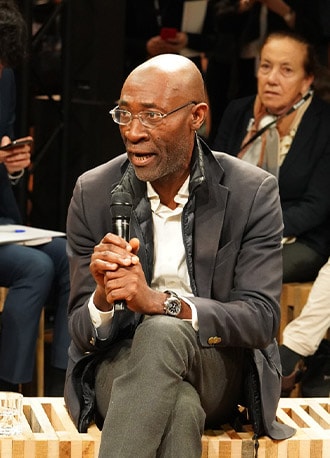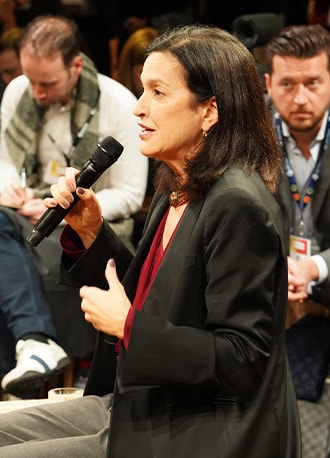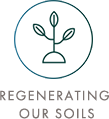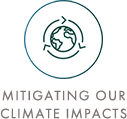COMPANY MENU
SPECIAL COLUMN

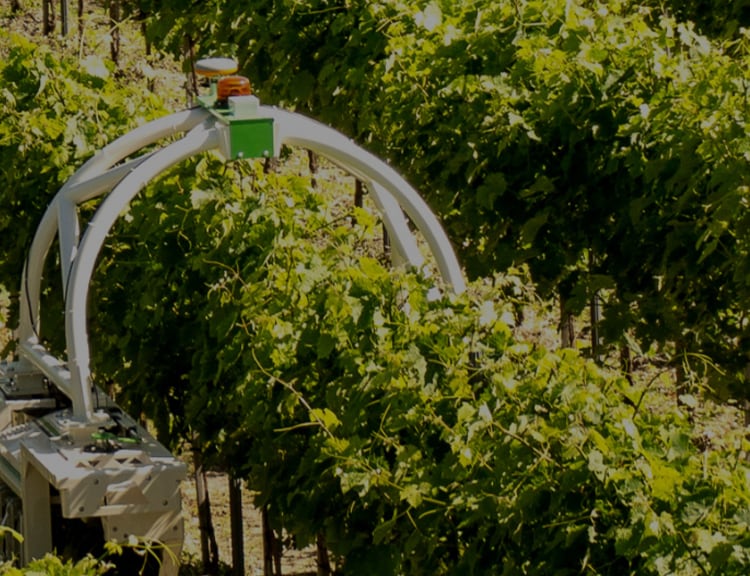
LIVING SOILS
An overflow of certification systems confuses American consumers
New Zealand succeeds with a single nationwide system
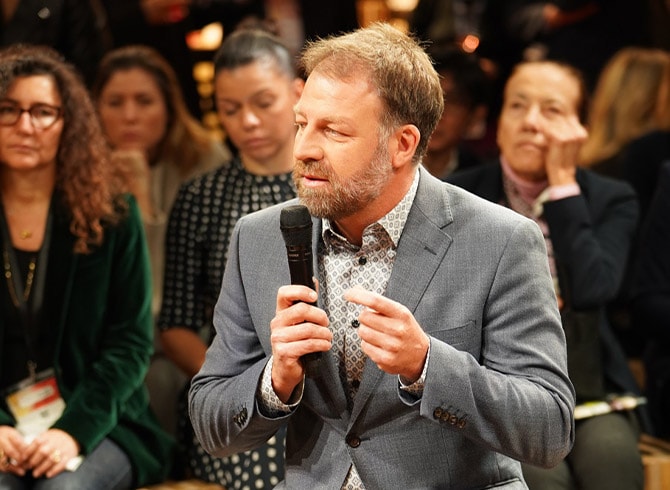
At the “Is certification beneficial?” panel, Jim White, Technical Director of New Zealand’s Cloudy Bay, introduced Sustainable Wine Growing New Zealand (SWNZ), a certification required of all wineries shipping product out of the country. “A nationwide system means that our country is represented by a single voice, and also that this system is protecting our land,” he said.
American wine critic Elin McCoy noted that the United States is overflowing in wine certifications, and that American consumers have difficulty understanding them. However, most consumers are concerned with environmental issues, and are willing to pay more for products made sustainably. She explained that it is important to keep things clear and understandable for consumers, stressing, “There’s a lot to do even at seminars and other retail locations.”
A revolutionary environment-friendly packaging
Ruinart introduces “Second Skin”
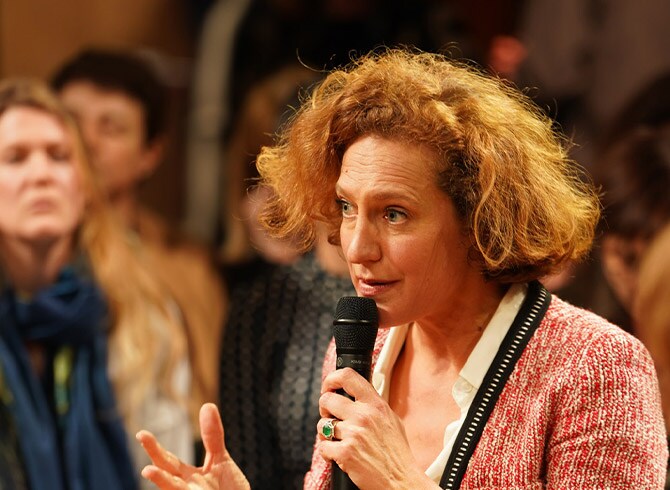
During the discussion on the topic “Reinventing Packaging,” Violaine Basse, Director of International Communications and Marketing at Ruinart, introduced “Second Skin,” a revolutionary packaging to replace conventional gift boxes. This packaging covers Champagne bottles in a 100% paper material, significantly reducing their environmental impact while also protecting products from harmful ultraviolet rays. The design is also intended to be ideal for gifting purposes.
Developers worked on the packaging for over two years, and Basse stressed the fact that it has one-ninth the weight of conventional gift boxes, which will reduce Ruinart’s carbon footprint by 60%. She also explained that the water discharged in the paper production process is purified before being returned to the rivers. The pulp used in the packaging is sourced from ecologically certified forests, which require four new trees to be planted for every one removed.
Second Skin is scheduled for use in the packaging of Ruinart Blanc de Blancs and Rosé, and will also come to Japan in spring 2021.
Defining luxury: A light that illuminates the way for others
Krug reduces water consumption by 50%. They also run a winemaking facility that conserves energy
For the topic “What are the responsibilities that luxury has today?”, Maggie Henriquez, President and CEO of Krug, had a discussion with Professor Simon Nyeck of ESSEC Business School.
Henriquez defined luxury as “a light that illuminates the way for others.” She elaborated, “That is to say, luxury impacts society. Therefore, we must take responsibility for keeping our light constant.”
In response, Nyeck said “Luxury is a more educated and more sophisticated method of enlightening society. Every leader and luxury brand has the particular responsibility to share information and provide education on sustainability.”
Using Krug as an example, Henriquez replied, “Some growers have been supplying us with grapes from as far back as 1869. We have to walk the same path as them.” Krug vineyards are already certified for sustainable growth, and they plan to support their contracted growers with technical and monetary support for achieving certification.
Krug previously used large amounts of water when washing their barrels, but they have since begun using a new method that reduces water consumption by 50%. They have also invested EUR 25 million (approx. JPY 3 billion) into constructing a winemaking facility specialized for low energy consumption, scheduled to start operation in June 2020.
Three-star chef Alain Ducasse joined in at the end of the program. He participated in a workshop that included students from Sciences Po (Paris Institute of Political Studies) and Ferrandi Paris, discussing what the environment surrounding wine and gastronomy will look like 30 years from now.
Philippe Schaus, CEO of Moët Hennessy, made the following comment on the reasons behind this symposium: “Moët Hennessy started to tackle environmental issues 20 years ago, but we still have a long way to go. However, in light of recent environmental changes associated with climate change, we need to move forward more quickly.” He also stated his belief that this symposium was a necessity for sharing knowledge among many experts.
“This isn't marketing. What action can we take in response to the crisis that is there now? The question is whether the future is also sustainable,” Schaus continued. He ended his statement by expressing his desire to hold this kind of symposium once or twice each year.

A wine journalist who has worked in the industry for 30 years. He started out working for a wine magazine before becoming an independent writer in 1997. In addition to working with wine magazines, he also writes articles on wine for lifestyle magazines. Yanagi is a Chevalier of the Ordre des Coteaux de Champagne, and a Commander of Honor of the Commanderie du Bontemps.
As a global leader in Luxury Wine & Spirits with many iconic Maisons, we have a special responsibility towards our
stakeholders and the planet as a whole. Our original founders strived to be responsible actors. It is our mission to nurture
this heritage by ensuring that people and nature partner together to get the best from the earth and give back to it. Soils,
as a complex ecosystem, are one of earth's most precious resources and a source of prosperity for Moët Hennessy.
The soils of our terroirs, the know-how of our people and the excellence of our products are closely interwoven. But our
commitment goes far beyond soil and terroir. Because taking care of nature is ultimately about taking care of people,
it is also our role to support communities and bring positive change to society. It's about Living Together as one.
Diageo global is also committed to implementing CSR activities in three areas:
Reducing our environmental impact, Promoting positive drinking, and Building thriving communities.
Alcohol is for those who have turned 18 years old.
Drinking alcohol during pregnancy or nursing may adversely affect the development of your fetus or child.
Drink in moderation. Drinking and driving is prohibited by law.
 Armand De Brignac
Armand De Brignac Dom Pérignon
Dom Pérignon Krug
Krug Moët & Chandon
Moët & Chandon Ruinart
Ruinart Veuve Clicquot
Veuve Clicquot Chandon
Chandon Château d’Esclans
Château d’Esclans Château Galoupet
Château Galoupet Château Minuty
Château Minuty Cloudy Bay
Cloudy Bay Joseph Phelps
Joseph Phelps Newton
Newton Numanthia
Numanthia Skyside
Skyside Taylor's
Taylor's Terrazas De Los Andes
Terrazas De Los Andes Ardbeg
Ardbeg Belvedere
Belvedere Glenmorangie
Glenmorangie Hennessy
Hennessy Old Parr
Old Parr Royal Household
Royal Household Talisker
Talisker Volcán de mi Tierra
Volcán de mi Tierra WhistlePig
WhistlePig